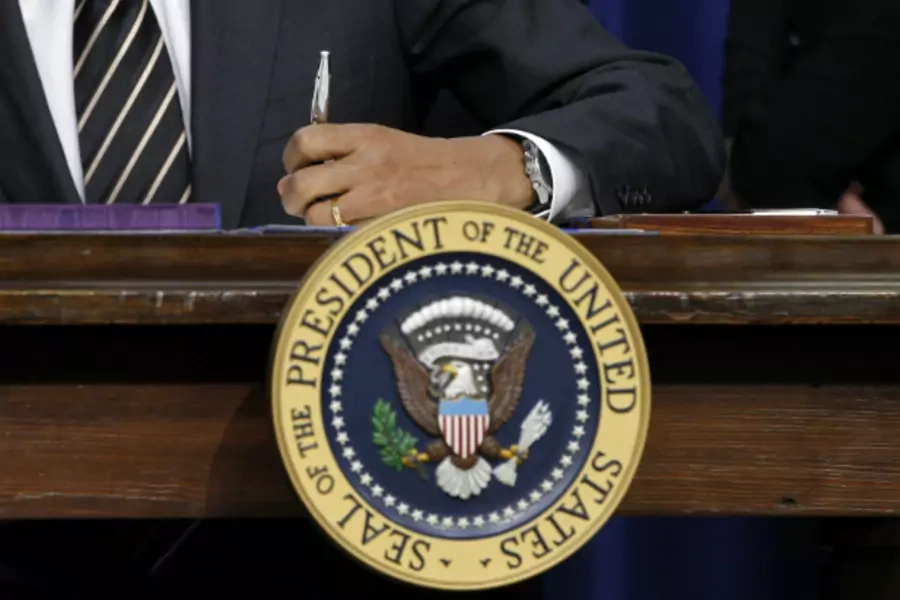Morning Brief: Debate Over JOBS Act’s Benefits and Risks

More on:
Today, President Obama is expected to sign the JOBS Act (CSPAN). The bipartisan measure is intended to ease financing for growing startups by reducing regulatory and disclosure requirements. Two senior fellows at the Brookings Institution agree with lawmakers that the JOBS Act will increase job growth, but Groupon’s recent revision of financial results (WSJ) and subsequent stock price plunge is a reminder of the risks of reducing financial disclosure. While the Financial Times argues it is difficult to predict effects of the JOBS Act, the New York Times discusses potential conflicts-of-interest for investment banks.
Innovation. Read more on how the U.S. capacity to innovate could play a chief role in economic growth.
Debt and Deficits
Rising State-Local Government Revenues Slow Layoffs
Declining tax receipts during the recession forced state and local governments to lay off workers, but Bloomberg reports that rebounding revenue is stabilizing public payrolls and even allowing some municipalities to begin rehiring. While many governments still face budget challenges, arresting the overall decline in state and local public employment will aid economic recovery, especially with looming federal budget cuts.
As the United States continues to run budgets with high deficits, politicians debate different plans to reduce government costs and to raise revenue. This CFR Backgrounder by Jonathan Masters outlines the competing policy paths on federal fiscal reform, and the global consequences for failing to bring down U.S. debt.
Debt and deficits. Read more from experts on the challenges in reducing U.S. debt.
Education and Human Capital
Assessment Consortium Connects to Colleges
The twenty-four member states of the Partnership for Assessment of Readiness for College and Careers (PARCC) voted unanimously to give higher education leaders a voice on student assessments (EducationWeek). PARCC is one of two multi-state consortia developing assessments for the Common Core State Standards under a Race to the Top grant. By bringing higher education leaders into the process, PARCC hopes to develop measures of K-12 student achievement that colleges will use to assess pupils’ readiness for college classes.
The new report of the CFR Independent Task Force on U.S. Education Reform and National Security highlights the importance of the Common Core State Standards and asserts that fixing the nation’s underperforming K-12 schools is critical to economic competitiveness and national security.
Education and human capital. Read more from experts discussing ways to improve U.S. education and immigration policies.
International Trade and Investment
Mexico Eager to Join TPP Talks
Reuters reports that Mexican President Felipe Calderon reiterated his nations desire to join the Trans-Pacific Partnership (TPP) trade talks. The TPP was originally a proposed free trade agreement between just Brunei, Chile, New Zealand and Singapore, but the negotiating group has grown to nine nations—including the United States, Australia and Vietnam—with Mexico, Canada and Japan each trying to secure a spot. By pursuing TPP, experts say the United States can regain the initiative in trade liberalization, while regional, multilateral FTAs may divert attention from the global WTO process.
This CFR Independent Task Force report encourages the Obama administration and Congress to adopt a "pro-America" trade policy that brings to more Americans the benefits of global engagement
International trade and investment. Read more from leading analysts on the debate over next steps in U.S. trade policy.
Corporate Regulation and Taxation
Financial Regulators Look beyond Banks
The Financial Stability Oversight Council (FSOC) unanimously approved a new classification rule to deem some nonbank financial firms as “systemically important.” Under powers granted by the Dodd-Frank Act (NYT), the FSOC will target firms for greater oversight that hold more than $50 billion in assets and meet any of the thresholds in areas such as debt, leverage or derivatives. While large institutions such as Berkshire Hathaway, GE Capital and KKR brace themselves for greater oversight, some critics argue that too many players in the “shadow banking” system will avoid regulation.
Corporate regulation and taxation. Read more from top economists and business experts on solutions for addressing corporate tax reform.
Steven J. Markovich holds an MBA from the University of Chicago’s Booth School of Business.
More on:
 Online Store
Online Store
